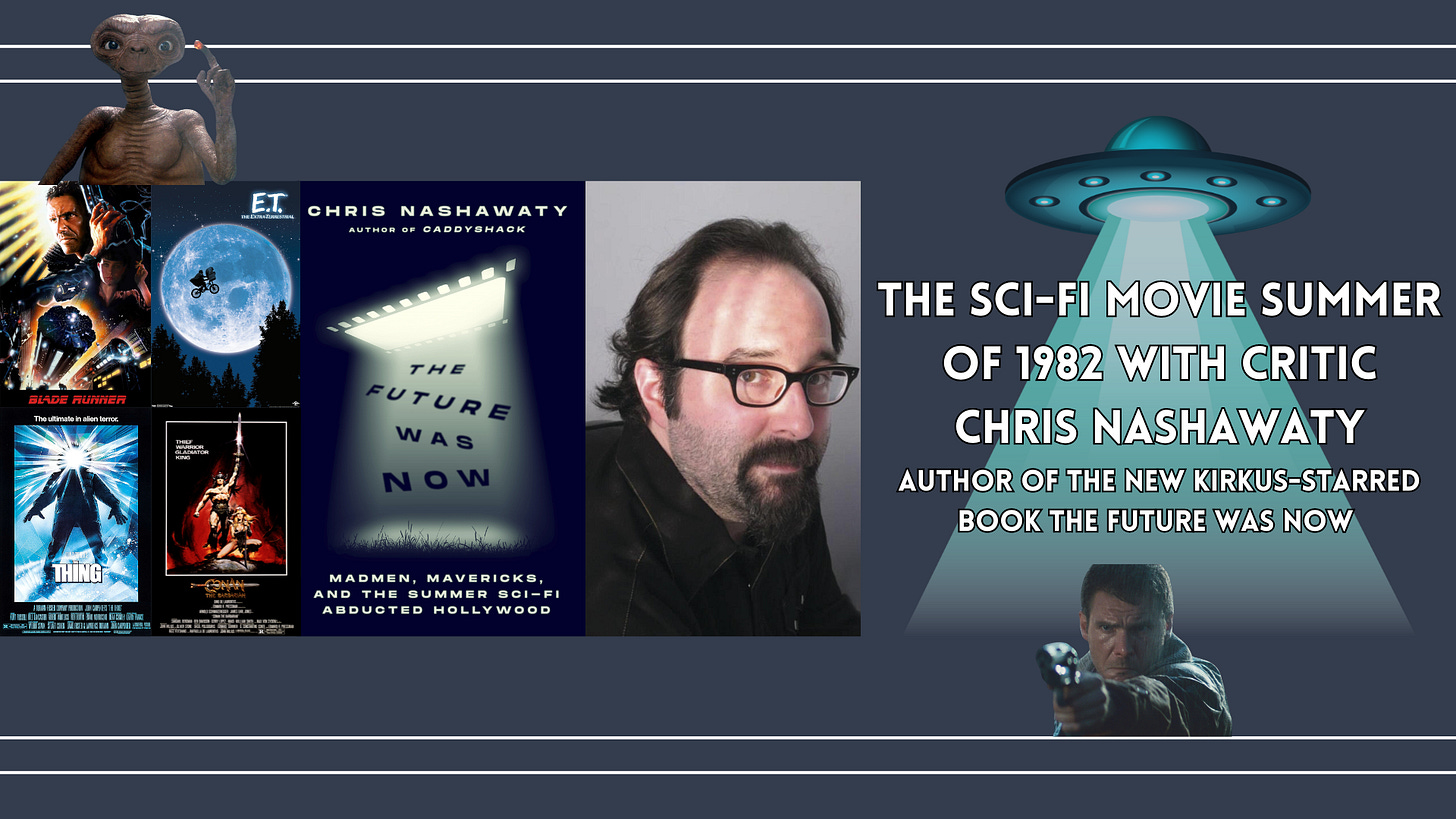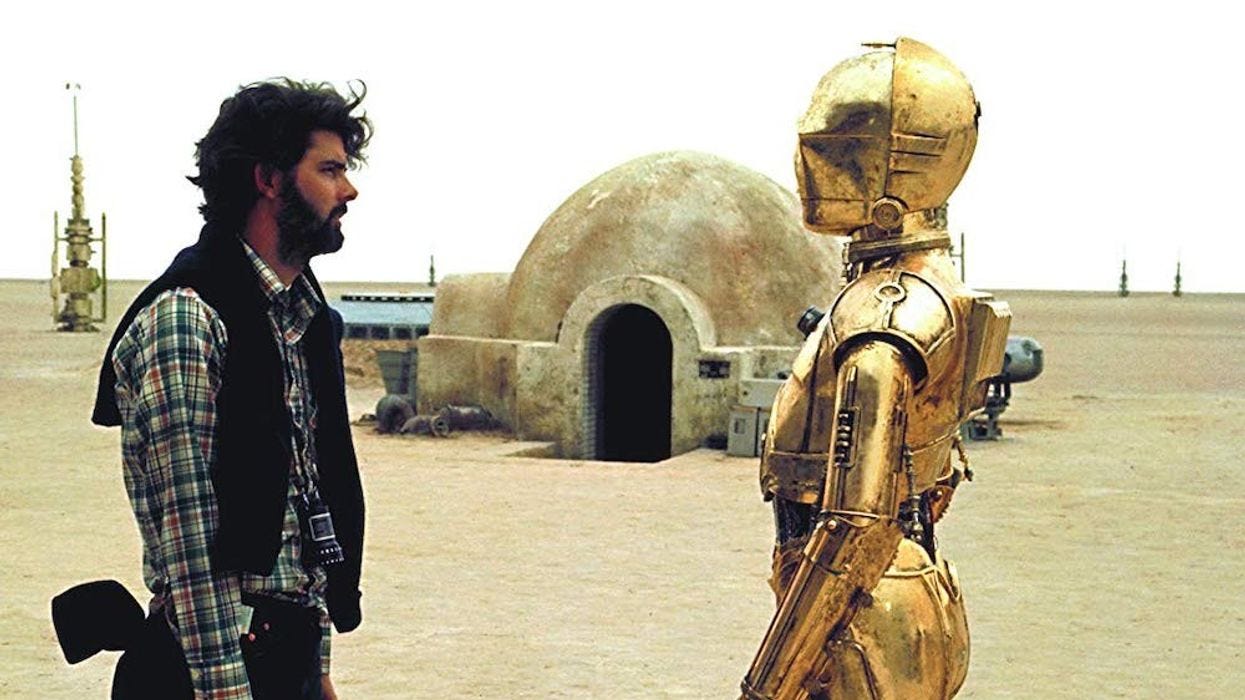Weekend Read: The Dazzling Sci-Fi Movie Summer of 1982 with Chris Nashawaty
An abridged version of this week's SchmearCast interview, discussing Nashawaty's new hit book 'The Future Was Now'
On this past week’s SchmearCast, I interviewed critic and author Chris Nashawaty about his fantastic new book The Future Was Now: Madmen, Mavericks, and the Epic Sci-Fi Summer of 1982.
We delve into the wild making of these modern classics, their receptions then vs. their impact now, Arnold Schwarzenegger’s insane work ethic, Nashawaty’s thoughts on modern fan culture, and his takes on some of 2024’s biggest sci-fi hits, amongst many other topics.
The following interview has been edited and condensed.
Schmear Hunter: So why 1982? What about this movie summer called to you?
Chris Nashawaty: In the summer of 1982, I was 13 years old. This was a formative time for me and for Hollywood. Five years after Star Wars premiered, studios were scrambling to get a piece of the sci-fi blockbuster pie. The Thing and Blade Runner opened on the same day, June 25th, 1982. I wrote a story about it for Esquire, and the more I explored that summer, I was shocked to discover how many other great movies came out at the same time. It felt like a very important summer for Hollywood.
SH: What was the significance of finding Star Wars when you looked back five years, from 1982 to 1977?
CN: Sci-fi as a genre hadn’t been hot since the late 1960s with the boom from 2001: A Space Odyssey and Planet of the Apes. When Star Wars came along, no one expected it to be a blockbuster. Its director George Lucas had a screening for his filmmaker buddies like Steven Spielberg, and they were like, “I don't know what the hell this movie is about.” The audience, which had been underserved for a long time, really responded to it. When Star Wars became a phenomenon, with lines around the block, all the studios were eager to get their own version of it. From deciding to make a sci-fi movie to getting a script, developing it, and producing it, it usually takes about five years.
SH: Movies like E.T., The Thing, and Blade Runner have been examined ad nauseam. How did you uncover new stories and never-before-told anecdotes about these popular films?
CN: It starts with picking up the phone. As a journalist, you can’t get anything fresh from existing stories, so you need to go back to the sources. For me, that meant digging in and interviewing directors, actors, and studio workers. A lot’s been written about other Hollywood periods, but this one was underreported. A lot’s been written about E.T., but not as much about Tron or The Road Warrior.
SH: So Steven Spielberg developed E.T. while shooting Raiders of the Lost Ark. First, how's that possible (especially knowing he never touched cocaine, unlike many other filmmakers of his generation)? And two, what were the gestations of that script?





